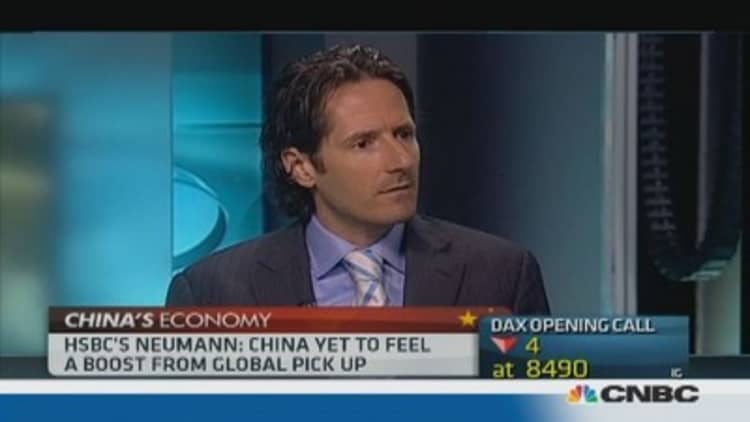China's property sector likely faces more cooling measures after residential prices climbed for an eighth month in August, but economists say the next step will be striking a delicate balance.
"It's not as simple as coming up with property measures," said Thomas Lam, chief economist at OSK-DMG. "They have been trying to cool down the property market; so far they have not been truly successful."
New home prices across China rose an average 8.3 percent on year in August, higher than July's 7.5 percent annual increase, according to calculations by Reuters based on National Bureau of Statistics data.
(Read more: China home prices rise for eighth straight month)
One of thedifficulties the mainland faces in controlling property prices is that the source of much of the demand is from end-users.

"There are still quite heavy restrictions on investment demand," said James MacDonald,head of research for China at Savills Research, noting the rise in property prices is "an indication of the underlying end-user demand in the property market."
(Read more: China property immune to tapering: China's richest man)
But China's property price increases are intricately linked to other policies aimed at re-balancing toward a more market-oriented economy as well as its foreign-exchange policy, Lam said.
"The more [authorities] intervene to restrain the appreciation of the Chinese yuan, the greater the risk surrounding liquidity. It creates more liquidity, creating more room for asset prices to push up," he said.
For the property sector, "it's not the ownership aspect; it's the inflationary risk," Lam said.
(Read more: China's property sector is booming even as economy slows)
To cool the market, Lam expects Beijing may experiment with a capital gains tax or tinker with mortgage availability.
Zhiwei Zhang, an economist at Nomura, expects more measures to come in November after the Communist Party meeting. "Just the senior leaders mentioning it in a speech can stabilize the expectation," he said, noting measures might include limiting credit supply to developers.

